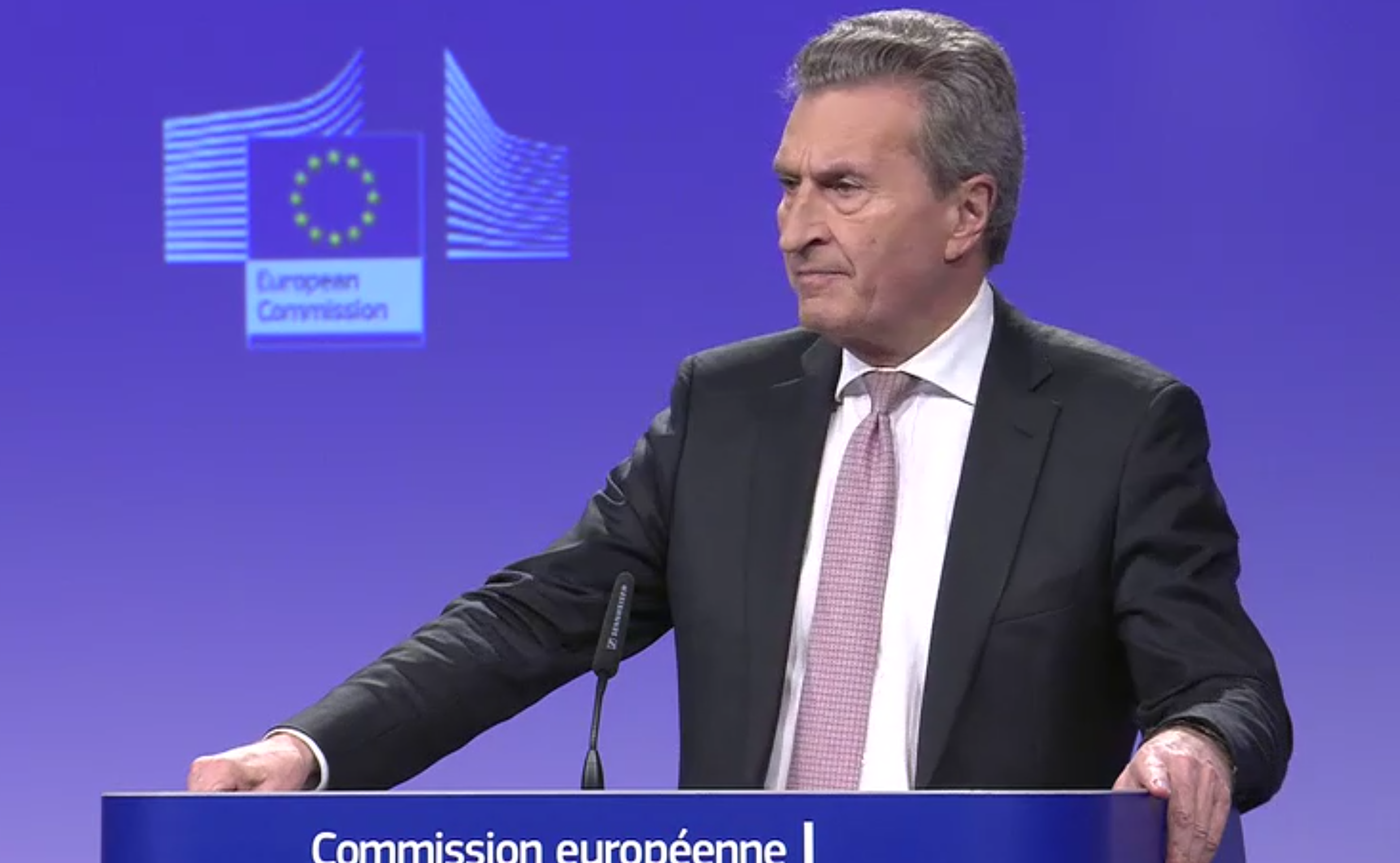EU plans new Europe-wide tax on plastics to help plug £20bn Brexit blackhole
The bloc also says it will make cuts, ask countries to contribute more, and says it should keep emissions trading revenue
The European Commission has proposed a new EU-wide tax on plastics to help plug a £20bn shortfall in the bloc’s finances after Britain leaves and stops making budget contributions.
Günther Oettinger, the Commissioner for the EU’s Budget, said the tax would be part of “new financial resources” available to the union and that the EU would also be making cuts to expenditure to finance new commitments and the revenue shortfall. Member states will also be asked to contribute more.
In additional to the new environment tax, officials are also suggesting moving the income from the bloc’s emissions trading scheme from member states to Brussels, arguing that this would be “logical” because the policy is set at the EU level.
“We have two main problems – we have a gap on the revenue side, and a gap on the expenditure side. The revenue gap is because of Brexit: following a transition phase, we will have a situation where the UK, a large country and net contributor, are leaving the EU,” Mr Oettinger told reporters in Brussels.
“Then we have the expenditure gap, which is due to tasks not covered by the existing budgetary framework, which was decided in 2011, 2012, 2013. We have areas such as border control, defence, migration, internal and external security. We also have other areas such as development cooperation and research.
The commissioner ruled out deficit financing or borrowing to fund spending aruing that the EU “should remain free of debt” and that “this means that every single euro spent must be financed by one euro’s worth of income.”
Arguing in favour of the plastics tax, he said: “In the interests of the world’s oceans, the Baltic, the Mediterranean, the north Atlantic, in the interests of our living organisms in these seats - both mammals and sea animals we have to ensure that we reduce the quantity of plastic used in Europe.
“This is why, as part of the package which we are going to be proposing in the next weeks, we will bring forward the possibility of introducing a tax on plastics to incentivise the reduced used of plastic packaging. This will be done via the introduction of a European tax on plastic.”
Though likely to be a relatively small revenue generator, the plastic tax idea is significant because the European Commission currently has little in the way of its own revenue-raising powers – instead relying on member states. Details on how high the tax would be will be subject to discussion, with proposals due from the Commission in the coming weeks.
The new proposals came after a meeting of the European Commissioners, effectively the bloc’s Cabinet, on Wednesday morning in Brussels.

Brexit is set to leave a €13bn (£11.5bn) annual funding gap because of the loss of the UK’s contributions, while the Commission estimates that the bloc will have to find “up to €10bn (£8.8bn) a year” to adequately deal with new challenges like migration.
The EU’s current annual budget is around €105 billion a year, or £92.8 billion. The largest gross contributors ahead of the UK are Germany, France, and Italy, who contribute around 21 per cent, 16 per cent, and 14 per cent respectively. The UK contributes 13 per cent.
The UK had the second highest net contribution, however, behind Germany. Only nine of the 28 member states are net contributors to the redistributive budget.
On Monday Jean-Claude Juncker, the European Commission president, said the Commission’s “working hypothesis” would be that “our British friends will be leaving us” and that future spending had to be planned accordingly.
The EU has annual budgets but to simplify proceedings the spending cap is agreed in blocs, known as the “multiannual financial framework” – which is binding on EU members.
Join our commenting forum
Join thought-provoking conversations, follow other Independent readers and see their replies
Comments
Bookmark popover
Removed from bookmarks